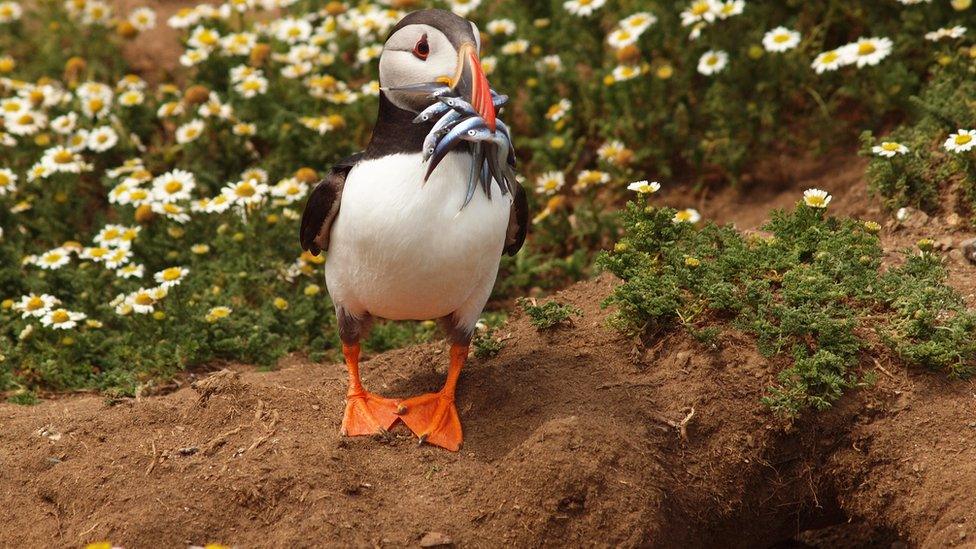'Puffarazzi' pictures may help seabird survive
- Published

Time to eat - one of Skomer's puffins returns to the island
Hundreds of snaps of puffins in Wales could help save the seabird species from the threat of global extinction.
asked the public to take pictures of the striking birds eating.
The charity's researchers want to know if their diet is responsible for a decline in UK populations.
Over 600 'puffarazzi' across Britain have contributed - including hundreds of images from Pembrokeshire's Skomer Island, and South Stack on Anglesey.
"Puffins are one of our most recognisable and much loved sea birds. People come from across the world come to witness the UK's colonies," said Danny Griffiths, from RSPB Cymru.
"However, in recent years numbers across the UK and Europe have plummeted."
There are about 580,000 breeding pairs of puffins across 40 colonies in the UK.
But RSPB scientists have warned that the bird is now vulnerable to extinction, with further declines in populations of between 50% and 79% anticipated by 2065.
At risk - puffins 'vulnerable to extinction' say the RSPB
"We believe that due to warming seas caused by climate change, this might be affecting puffins' food source, and this could be one of the main threats to the numbers at the end of the day," added Mr Griffiths.
"The next stage of this Project Puffin now is to look closely at the images that were sent in last summer, and to examine exactly what the diet of the puffin is, and see if there's a link between that and the breeding success - or the lack of it perhaps."
So far, researchers have found that two-thirds of the diet of Welsh puffins is sandeels, but the birds also eat tiny members of the cod family - rockling - herring, sprat and even squid.
They said early indications suggest that where puffin colonies are struggling, pictures reveal much smaller fish.
The charity said it wanted people to keep sending in their pictures of puffins, to add to their knowledge.
"We just encourage people throughout the year to just head off and take photos as you can," said Mr Griffiths.
"The data we have collected was on a scale that we have never collected before, and it's so helpful in our fight to save the species."
- Published23 April 2017
- Published29 October 2015
- Published11 April 2011